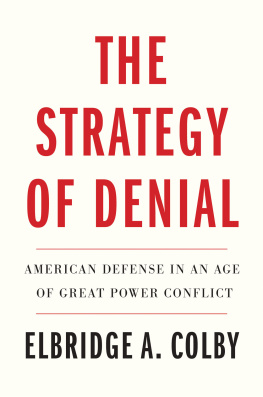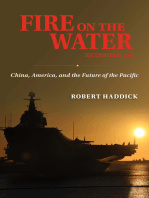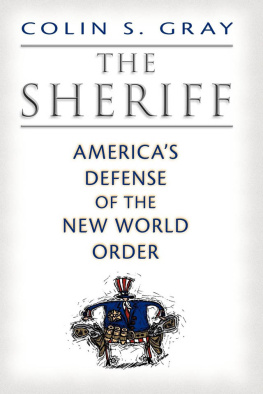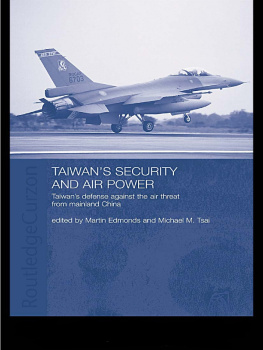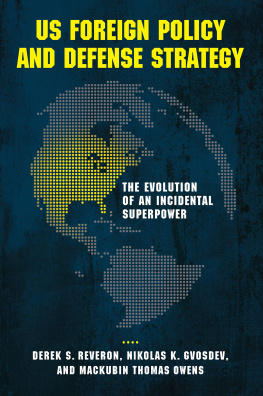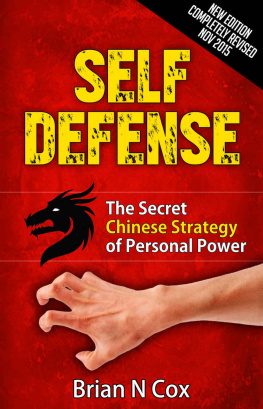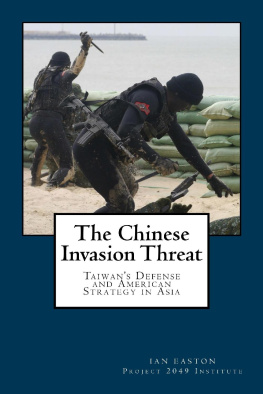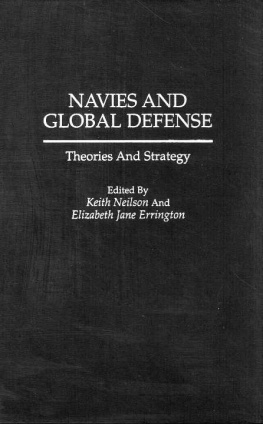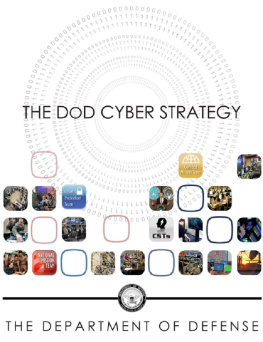THE STRATEGY OF DENIAL

Published with assistance from the foundation established in memory of Philip Hamilton McMillan of the Class of 1894, Yale College.
Copyright 2021 by Elbridge A. Colby.
All rights reserved.
This book may not be reproduced, in whole or in part, including illustrations, in any form (beyond that copying permitted by Sections 107 and 108 of the US Copyright Law and except by reviewers for the public press), without written permission from the publishers.
Yale University Press books may be purchased in quantity for educational, business, or promotional use. For information, please e-mail (UK office).
Epigraph: Republished with permission of Princeton University Press, from Carl von Clausewitz, On War, ed. and trans. Michael Howard and Peter Paret (Princeton, NJ: Princeton University Press, 1976, revised 1989), 8889, 606607; permission conveyed through Copyright Clearance Center, Inc.
Set in Times Roman and Scala Sans type by IDS Infotech, Ltd.
Printed in the United States of America.
Library of Congress Control Number: 2021932610
ISBN 978-0-300-25643-7 (hardcover : alk. paper)
A catalogue record for this book is available from the British Library.
This paper meets the requirements of ANSI/NISO Z39.48-1992 (Permanence of Paper).
10 9 8 7 6 5 4 3 2 1
This book is dedicated to my father, Jonathan, with profound respect and gratitude for his example and encouragement
The first, the supreme, the most far-reaching act of judgment that the statesman and commander have to make is to establish ... the kind of war on which they are embarking; neither mistaking it for, nor trying to turn it into, something that is alien to its nature. This is the first of all strategic questions and the most comprehensive....
Nothing is more important in life than finding the right standpoint for seeing and judging events, and then adhering to it.... Policy is the guiding intelligence and war only the instrument.
Carl von Clausewitz, On War
CONTENTS
PREFACE
WHAT IS THE BEST DEFENSE STRATEGY for America?
In other words, for what purposes should the United States be prepared to fight, and how should US military forces be readied to fight such wars? Because these questions involve life and death and loss on a great scale, they cannot be answered sensibly without a clear sense of the purposes such a strategy should serve.
For many years, these questions were not so pressing or pointed. Following the collapse of the Soviet Union, the United States was so much more powerful than any plausible rival that it could readily best any opponent over any interest for which it might realistically care to contend. While the United States might not have been able to seize Beijing or Moscow without suffering a nuclear retort, it had no reason to try. It enjoyed global preeminence without going to such lengths. For anything it might care to fight overagainst Russia over NATO or against China over Taiwan, the South China Sea, or Japanit needed only to apply the resources required to prevail.
That world is gone. The unipolar moment is over.
Above all, this is because of the rise of China. Napoleon is supposed to have remarked that, when China rose, the world would quake.sophistication mean that its rise will be of the utmost significance. It is one thing to describe the phenomenon; it is another thing to understand how to react to it.
This book seeks to explain what this reality means for the defense of the United States and its important interests. It is motivated by the concern that Americans and those interested in Americas defense strategy do not yet have a framework to answer these questions in a way that is at once comprehensive, rigorous, and sound. There are, of course, contemporary works on strategymany superbbut they are mostly concerned with grand strategy. Few lay out a single, coherent framework that provides clear guidance on what the nations defense strategy should be as an outgrowth of its grand strategy.
The absence of such a framework is a serious problem. In the unipolar era, Americans could make decisions about strategic questions without too much fear of the consequences; Americas preponderance of power buffered it from the results of its decisions becoming too painful.
This is no longer the case. Power is now more diffuse, and the places to which it is diffusingespecially Chinaare not established US allies. Ten years ago, the United States spent more on defense than the next eighteen countries combined, and most of the immediately trailing countries were close allies. Today, that margin has shrunk; it spends as much as the next seven combined, and China, which has leapt into second place, has increased its defense spending by around 10 percent every year for the past twenty-five years. And the margin is likely to shrink further as China grows.
It is not only the structure of global power that has changed. In the 1990s or 2000s, one could imagine that the world was becoming more peaceful and cooperative; states such as China and Russia appeared largely to accept the international lay of the land. Recently, however, the world has become more tense, if not rivalrous, in ways that reflect not just structural changes but also the reemergence of a more overtly competitive attitude. This has meant that major war, which once seemed a thing of the past at least in certain parts of the world, now seems considerably more plausible.
How should the United States orient itself to all this? The fundamental reality is that there are now structural limitations on what the United States can doit cannot do everything at once. Thus it must make hard choices. And with hard choices, a framework for making thema strategyis crucial. A state can muddle through without a conscious strategy when the consequences are minor, when others determine its fate, or when it is already servant to an existing strategic framework. But, given their newfound limits, Americans now need to reconcile their international aspirations and commitments with their ability and willingness to follow through on them. To make intelligent decisions under such conditions, Americans need a basis for determining what is important and what is not, what the primary threats to the nations interests are, and how best to serve those interests in a way that is attentive to the costs and risks they are willing to bear.
Importantly, a strategy is a framework, not a master plan. It is predicated on a coherent view of the world and provides a logic within which to make choices and prioritize. It is, at its heart, a simplifying logic to deal with a complex world that would otherwise be bewildering. Strategy, in this sense, is like any good theory meant to help explain the worldit should be as simple as possible, but no simpler. Without such a logic, there is no coherent way to discern what is truly important and needs to be specially prepared for versus what can be managed or ignored. In the situation of scarce resources in which the United States now finds itself, this is a recipe for frustration or disaster.
A strategic framework is especially necessary in times of transition like today, when the ideas and frameworks of yesteryear become increasingly mismatched with reality. The generation of postCold War primacy unmoored some Americans, or at least some of their leaders and eminent thinkers, from underlying realities, giving them a highly exaggerated sense of what the United States could and should accomplish in the international arena. This has had a number of sorry results. Moreover, many of Americas leading thinkers on international affairs retain this heady sensibility, as if hoping the nation can will itself back to unipolarity, even as many ordinary Americans sense that things have changed profoundly. At the same time, there is a powerful strain, especially in the academy, of arguing that the United States should retrench and adopt a dramatically less engaged foreign policy than it has pursued since the Second World War.
Next page
